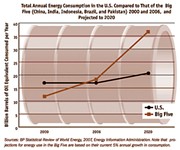Power House
Will This Year Mark Dems' Last Stand at the Lege?
By Robert Bryce, Fri., Feb. 4, 2000
The sea change in the state's political makeup would have been nearly unthinkable a decade ago when Democrats held all but one of the major statewide elected offices (see chart). They also held one of the two U.S. Senate seats, had a 2-to-1 majority in the U.S. House delegation, and dominant majorities in the Texas House and Senate. But what a difference a decade makes. Today, Texas is one of only four states in which all of the statewide elected officials are Republicans. The only Democrat with significant power in the state is Pete Laney, the speaker of the House, who was elected by voters in and around Hale Center, a tiny rural community in the Panhandle.
This year's Texas House and Senate races are "by far the most important elections of the decade," says Jerry Polinard, a professor of political science at the University of Texas-Pan American in Edinburg. "The legislature that's elected this time will do redistricting, and that will likely decide the elections for the rest of the decade."
In the House, where Democrats currently have a five-seat majority -- with one traditionally Democratic seat in San Antonio vacant -- a half-dozen races, including District 48 in Austin, will decide which party makes up the majority. In the Senate, where Republicans have a one-seat majority, the balance will likely be decided by the contest for Senate District 3, the East Texas seat being vacated by Sen. Drew Nixon, the not-too-savvy Republican from Carthage who was arrested a few years ago while soliciting a prostitute on South Congress. Both Democrats and Republicans are predicting victory in Nixon's old seat. And both parties will spend heavily to get it. Bryan Eppstein, a Fort Worth-based political consultant who has 59 clients either in or running for the Texas Legislature (50 of them are Republicans) predicts that the winning candidate in District 3 will spend $1.5 million by the time voters pick the winner in November.
Eppstein, who is working for Todd Staples, a Republican legislator from Palestine who is vying for Nixon's seat, admits to being biased toward the GOP. But he says the Democrats have not played fair during past redistricting fights and that the "gerrymandering of the past was odious." With Republicans at the helm in 2001, Eppstein predicts, "We'll see more fair lines being drawn. There is something wrong when Republicans win all the statewide offices but they don't have a fairer portion of seats" in the Texas Legislature or the U.S. Congress.
Susan Weddington, the chair of the Texas Republican Party, believes the Democrats have already lost the redistricting battle -- "they just haven't taken their rose-colored glasses off." She said if legislative districts were drawn at right angles throughout the state without regard for municipalities, the GOP would have "close to 90 seats in the Texas House." That may be an exaggeration, but Weddington is clearly correct when she says that Texas voters are "preferring Republicans at the ballot box and it's been consistent over the past two or three election cycles." To bolster her point, Weddington provides a three-page list of officeholders at the local and county level who have switched from the Democratic Party to the Republican Party over the past few years.
Molly Beth Malcolm, the chair of the Texas Democratic Party, admits her party is "in a rebuilding mode." That's a charitable way of putting it. The party didn't have enough money or candidates to even pose challengers to Republicans running for the Railroad Commission or the Supreme Court, and it is posing minimal challenge to U.S. Sen. Kay Bailey Hutchison, who is up for re-election. The reason, says Malcolm, is that Hutchison already has $6 million in her campaign coffers and the Democrats simply can't compete with her money.
Rather than go after the other statewide offices, Malcolm said her party is concentrating on the Texas Legislature. "We are putting our emphasis there because they are the ones that make the laws in this state," she said. Malcolm added that her party has other concerns than the looming redistricting fight. She believes the Legislature would have passed the controversial hate crimes bill last year if the Democrats had control of the Senate. "The House passed the hate crimes bill," she said. "When it got to the Senate, we couldn't get it out because the committees were chaired by Republicans."
Confident that the Democrats will prevail in the House and Senate in November, Malcolm added that the party has a number of people "waiting in the wings" to take back some of the ground the party has lost. "In 2002 we'll begin winning back some of those statewide offices," she said.
Given the dramatic losses the Democrats have endured over the past 10 years, Malcolm's claim may be wishful thinking. In any case, though, it is clear that for now, the Democrats cannot focus on statewide offices. Instead, they have to concentrate on reclaiming a majority in both Houses of the Legislature. If they don't, Polinard predicts, Texas Democrats will "find themselves in an even deeper hole than they are now."
At the moment, it's hard to imagine how that hole can get much deeper. ![]()
Got something to say on the subject? Send a letter to the editor.








